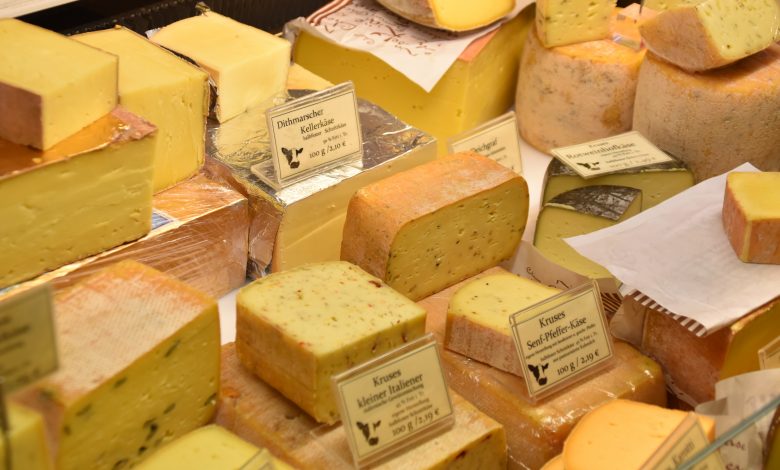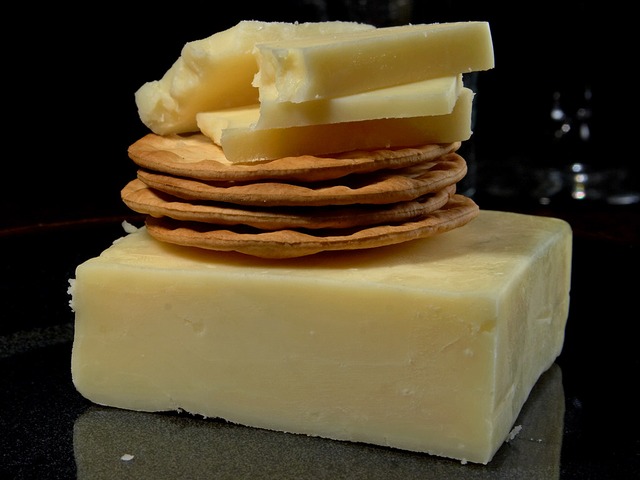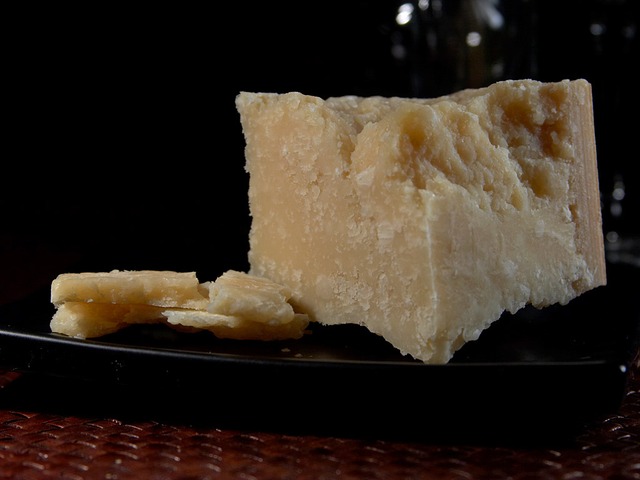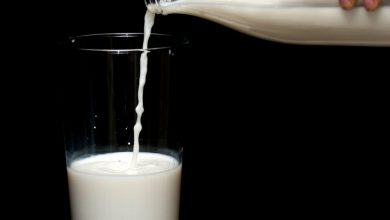
How to Include Cheese in Your Diet for Quick Weight Loss
If you are embarking on a weight loss diet, there is a very good possibility that the first thing you have cut out of your meal plan is dairy. Dairy has a bad rep as one of the chief contributors to those increasing inches around your waistline. Go out on a lunch date with practically anyone who is on a diet, trying hard to lose weight, and they will religiously avoid the milk in their coffee, stay away from buttering the toast, and balk at the cheese in the pizza. In general, there is this notion that dairy products, and that definitely includes cheese, can add to your weight drastically and so if you are not in the mood to sabotage your diet, you would be smart to avoid them at all costs. If you have been harboring the same notion and that has been the reason why you have diligently asked for no cheese pizza, we have some good news for you. Cheese may not be such a villain after all! In fact, it may well be the knight in shining armor for your weight loss story.
The best news is yet to come. It is not just that there is no need to avoid cheese if you are trying to trim your waistline. The fact is that eating cheese may actually help with weight loss, and more importantly, cheese may hasten the weight loss as well.
An interesting study carried out in Australia, published in The Telegraph mentions how the volunteers were asked to consume more dairy, including cheese, over a 12 week period. At the same time, they were on a low- calorie diet apart from these food stuffs. The study concluded with the findings that those volunteers who had increased their dairy servings lost the maximum weight among the 40 volunteers. That was not the only benefit – these volunteers had also improved their overall health rather significantly, with lowered stomach fat and lower blood pressure. Clearly, adding dairy to their diet had a clear benefit to offer that was not restricted to weight loss alone.
The notion that cheese should be cut out entirely because it is high in fat may not be entirely wrong, as there is much more to cheese than just fat- This is the aspect that we fail to factor in.
Pros of Including Cheese in Your Diet

Protein Rich Cheese is Your Ally in Snack Avoidance
One of the most troublesome problems that weight watchers face is that they find it incredibly difficult to cut out the snacking in between meals. Many people who suffer from uncontrollable weight gain have the habit of snacking frequently, especially after dinner. After dinner snacks add a whole lot of calories to the system, and it all shows well on your waistline. You may even be aware that this habit is harmful, but you just can’t control the urge.
Cheese may help you curb the urge rather effectively. Like other dairy products, cheese is protein rich, and as with other protein rich foods, this one too makes you feel rather full and satiated after you have been snacking on it. A study that appeared in the Scandinavian Journal of Primary Health showed that after consumption of high fat dairy, the study participants exhibited a lesser predilection for obesity than a similar group that had stayed away from high fat dairy. Other studies have shown that, in sharp contrast to what is believed, high fat dairy may lead to a lowered risk of obesity. The conclusion is that the ability of dairy products to make us feel fuller leads to a reduced need for snacking in between meals and also results in lower portion sizes at meal times. Both of these factors combine to ensure that steady weight loss occurs over a long term.
The Calcium Connection with Weight Loss
There is evidence to suggest that avoiding dairy foods is a bad move for dieters because the resulting lack of calcium in the diet impairs the fat burning that the body is capable of. In other words, adequate calcium means fat burning takes place at the right pace within our system. Give the body the calcium it needs from a natural source, such as cheese, and you ensure that metabolism takes place in the right way, burning up fat and turning it into energy. This way, you do not feel sluggish and lethargic all day, and your fat reserves are not ending up on your tummy but being converted into energy that you can expend every day with an active lifestyle. Keep in mind that depriving your body of essential calcium can pave the way for brittle bones, long term problems like osteoporosis, vitamin deficiencies, and also joint aches and pains. An ounce of cheese packs in 250 milligrams of calcium, apart from 100 calories, 8 grams of fat, and 7 grams of protein. If you are thinking that your calcium supplement must be making up for the deficiency that arises from dairy avoidance, that may not be the case. Supplements do not seem to promote the fat burning as well as calcium from food sources does.
There is more to the calcium factor than you think. If you have a calcium deficiency, you tend to hold greater fat mass. This is in addition to the many other problems that low calcium can result in. This deficiency can also rob you of your control over your appetite, which means you may be eating more than you need to just because your body is trying to shore up its calcium reserves. Simply by eating fresh cheese, loaded with the goodness of calcium, you may be helping your body burn fat faster, and thus improve your weight loss speed.
Better Utilization of Fat
Cheese may also help the metabolism work better and more efficiently. There are bioactives in milk fat that are seen to impact metabolism in positive ways. As a result of including cheese in your diet, you may give a helping hand to your body’s metabolic system, enabling it to utilize the stored and ingested fat in a more efficient manner, converting it into energy more optimally. The result is that you store less fat, your stored fat reserves are burned off quickly, and you feel more energetic. The extra energy you have now to burn off ensures that you adopt a more active lifestyle, thus setting in motion a very helpful cycle.
The combination of protein and calcium in cheese is what helps this food boost the metabolism so effectively. The second benefit of this combo is that the weight loss happens without any loss of muscle, which is the ideal outcome you wish to achieve. A Danish team of researchers found that cheese eaters have a unique metabolism that they labelled “cheese metabolism.” According to their studies, they found that regular ingestion of cheese resulted in a different composition of gut bacteria in the subjects. The level of the anti-inflammatory fatty acid named butyrate was much higher in this group, which is good news since this fatty acid is known to balance body fat percentage and stave away obesity, besides giving a boost to the metabolic activity.
How to Make Cheese an Effective Part of Your Weight Loss Diet
Now that you know cheese is actually good for your waistline, this does not mean yet that you can gorge on the good stuff and expect to stay lean and trim. As with any other food, moderation ensures that you derive the maximum benefits. With cheese, you can lose weight by increasing the amount you consume over the day, but only if you ensure that you are not eating more than your body needs to convert into energy.
Staying active through the day by adopting a more active lifestyle than you are used to allows your body to convert the dairy into fuel faster and also keeps you from gaining weight thanks to the dairy intake. It is imperative for you to consume the right kind of cheese, filled with the goodness of nutrients so that your body benefits from consuming it on a regular basis.
So which are the right kinds of cheese?
Best Cheeses to Include

Cottage Cheese
Mostly protein and low on fat, cottage cheese can be a wholesome meal in in itself. Add it to a bowl of fruits or vegetables, and you can make a healthy, satiating salad in minutes that will give you your daily requirement of calcium and protein in a very tasty form. Packed with calcium as well, cottage cheese helps you build healthy bones on the side. A cup of cottage cheese can give you a whopping 28 grams of protein – an excellent start to the day if you are taking this cheese for breakfast.
Parmesan Cheese
The perfect addition to Italian dishes, parmesan has an exotic taste and fragrance that adds a nice touch to the dish it goes into. This cheese goes very well with roasted veggies as well. A tablespoon of parmesan cheese gives you almost two grams of protein. In addition, it also has phosphorus, which helps with better bone health. Generally, even those with lactose intolerance can tolerate parmesan since the aging process this undergoes eliminates the lactose to a large extent.
Feta Cheese
Low in fat when you compare with other varieties, feta has this tangy taste that makes it an excellent addition to salads or on toast. Packed with the goodness of calcium, feta cheese is also good for your heart health. One ounce of feta gives you four grams of protein. The CLA (conjugated linoleic acid) that this cheese contains is believed to help with weight loss. Note that the CLA content in feta is higher than in most other cheeses.
Cheddar Cheese
A milder tasting cheese, cheddar is a good addition to nearly anything you can think of. Add it to your salad, wrap, omelet, or breakfast wheat bread, and you will have a wholesome, filling meal ready in minutes. A slice will give you seven grams of protein. Cheddar has vitamin K, in addition to protein and calcium, and that makes it an excellent addition to your diet plan.
Mozzarella Cheese
This soft cheese has high moisture content, but it is low in both calories and sodium. An ounce of mozzarella gives you six grams of protein. Mozzarella is also an awesome addition to your diet because of its probiotic benefits that help aid your digestion.
Ricotta Cheese
Another Italian product that has an exotic flavor and fragrance, Ricotta is sort of like cottage cheese in both appearance and texture, although the latter may be creamier. A half cup of ricotta gives you twelve grams of protein, and it is also quite rich in calcium. The protein you find in this cheese is primarily whey protein, so it has a ton of amino acids that your body will welcome. Whey helps promote muscle growth quite dramatically.
Swiss Cheese
The best choice for those with blood pressure imbalances, swiss cheese has a low sodium content that makes it a safe food choice in such situations. One ounce of whole milk swiss comes with eight grams of protein. Packed with calcium and low on carbs, swiss cheese is also a good inclusion in your sandwiches and soups.
Goat Cheese
Another tangy, flavor-rich cheese that makes an excellent addition as a spread or on salads and wraps, goat cheese is very nutritious but high on calories, so use it in moderation. One of the biggest advantages of using goat cheese is that you can spread it easily over your toast or crumble it over salads. An ounce of this cheese gives you five grams of protein. The type of fat that this cheese contains is more easily absorbed by your body and less likely to be stored away as fat, so that contributes to maintaining your weight as well. With A2 casein, goat’s cheese may be easy on the digestive tract for those with frequent complaints of gas, bloating, and indigestion.



